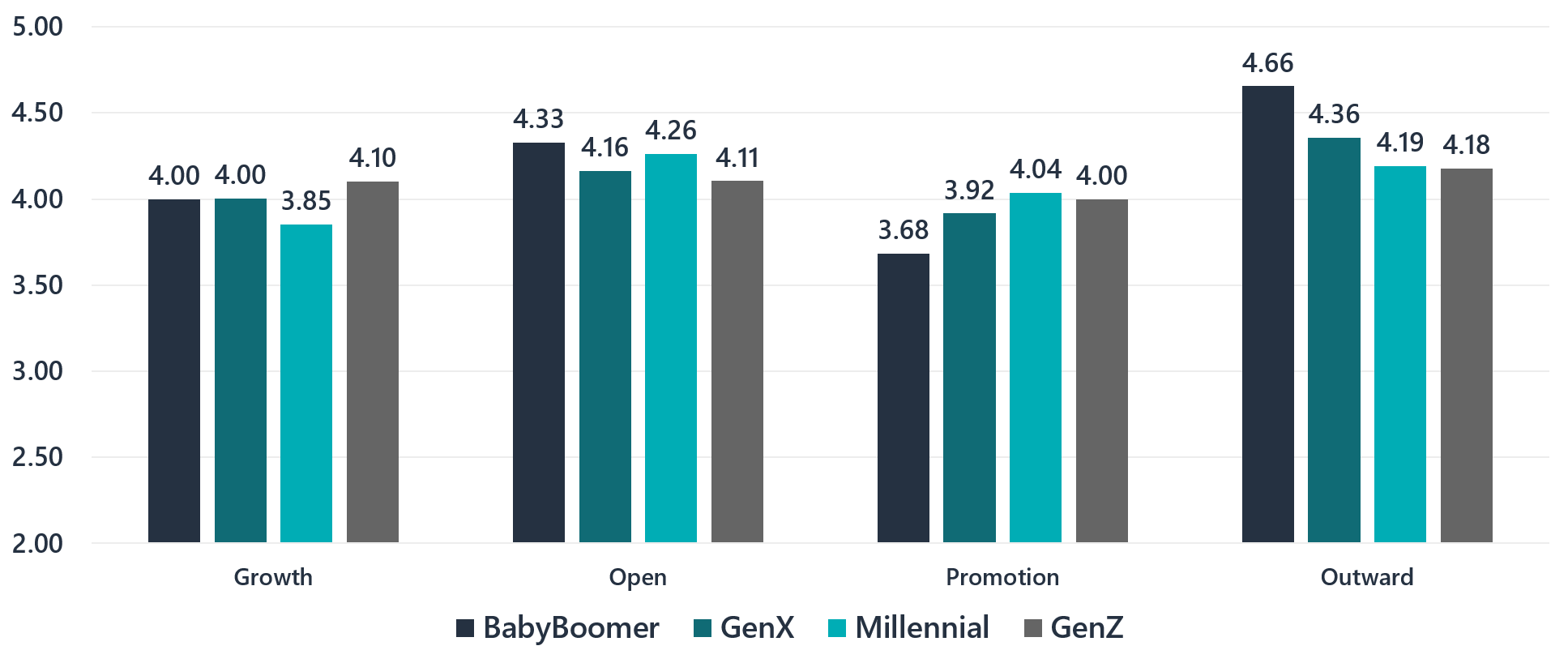I recently partnered with Aimpoint Research to investigate how mindsets might differ across different demographic profiles, including political affiliation, income level, gender, education level, generation, geographic region (in the United States).
I am finding the results quite interesting. I am in the middle of several articles, I will be sharing related to this research. Here are the other articles that I have compiled so far:
This week, I’m covering how mindsets differ by generation. Specifically, I look across Boomers, Gen X, Millennials, and Gen Z.
Research Information
Our sample was designed to be a decently close representation of the United States population at large. We ended with a sample of 587.
What I am presenting to you is the average mindset scores across different generations. I was able to find unique differences across these generations. To me, these differences are interesting, somewhat meaningful, but they ARE NOT technically statistically significant.
What this means is that we can infer that while one group (e.g., Gen Z) may have a more positive mindset than another group (e.g., Millennials), we will surely find some Millennials that have more positive mindsets than some Gen Zers.
Regardless, it is interesting to see the differences.
Mindsets by Generation
Here are the results:

Key Findings:
- Fixed to Growth Mindsets. Surprising to me is that there is a rather large difference between Millennials and Gen Zers. Millennials have more fixed mindsets (seem to be more focused on looking good and avoiding failure), while Gen Zers have more growth mindsets (seem to be more focused on learning and growing).
- Closed to Open Mindsets. The most open-minded group was Baby Boomers, with Millennials in a close second. This means that they are more focused on finding truth and thinking optimally. And, while Gen Zers have a stronger growth mindset, they seem to be the most close-minded (more focused on being right).
- Prevention to Promotion Mindsets. While Millennials are the most fixed-minded, they are also the most promotion-minded (slight margin ahead of Gen Zers), which means that they are more focused on winning and gains (i.e., more purpose-focused). Baby Boomers are the most prevention-minded, which means that they are more focused on avoiding problems (i.e., more comfort-focused). This might be one reason why Millennials and Gen Zers may rub Baby Boomers the wrong way.
- Inward to Outward Mindsets. The findings here confirm some of my previous research on mindsets by age, where there is a positive correlation between age and outward mindset (i.e., the older you get, the more you become outward-minded). Baby Boomers are substantially more outward-minded (see others as people and value them as such) than Millennials and Gen Zers, who are more inclined to see others more as objects. Again, another reason why Millennials and Gen Zers may rub Baby Boomers the wrong way.
While these are very interesting findings, they are also generalities. These results DO NOT suggest, for example, that all Baby Boomers are outward-minded and that all Millennials are fixed-minded.
If you want to take the mindset assessment for yourself, you can take it here: FREE Personal Mindset Assessment











2 Responses
Thoughts on the “promotion” mindset of Millennials… could this be because wages have not increased for workers as they have for leadership? So the only way Millennials can make any money to achieve things like own a home and have a family is to get promoted into leadership roles?
… Just a though.
There may be something to what you are saying. Millennials may need to be more entrepreneurial to be able to get ahead compared to prior generations. I am feeling that right now as I am in the process of buying a new home. Home prices make up a much higher percentage of one’s income now than in past generations.